Want to be seen here?
Connect your company to the marketplace for free.
Time for a display campaign? Ocast has gathered thousands of solutions in one place so you can get started quickly. Fill in the form and start receiving offers for campaign proposals.
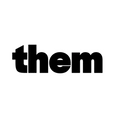
Society · Them is an American online LGBT magazine launched in October 2017 by Phillip Picardi and owned by Condé Nast. Its coverage includes LGBT cul...
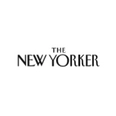
Society · The New Yorker is an American weekly magazine featuring journalism, commentary, criticism, essays, fiction, satire, cartoons, and poetry. Fo...
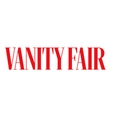
Style & Fashion · Vanity Fair is a monthly magazine of popular culture, fashion, and current affairs published by Condé Nast in the United States.The first ve...
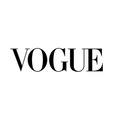
Style & Fashion · Vogue is an American monthly fashion and lifestyle magazine that covers many topics, including haute couture fashion, beauty, culture, livin...
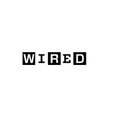
Tech · Wired (stylized in all caps) is a monthly American magazine, published in print and online editions, that focuses on how emerging technologi...
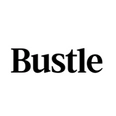
Entertainment · Bustle is an online American women's magazine founded in August 2013 by Bryan Goldberg. It positions news and politics alongside articles a...
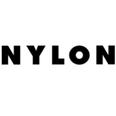
Style & Fashion · Nylon is an American multimedia brand, publishing company, and lifestyle magazine that focuses on pop culture and fashion. Its coverage incl...
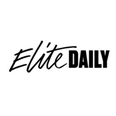
News · Elite Daily is an American online news platform founded by David Arabov, Jonathon Francis, and Gerard Adams. The site describes its target a...

Society · Humans are resilient. In our toughest moments, we will fight, we will struggle, and we will triumph...often against the odds. In this immers...
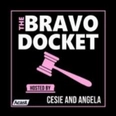
Advertising · The Bravo Docket is a podcast where two practicing attorneys examine and discuss the lawsuits and legal disputes of reality television perso...

Advertising · A season of big, new, beautiful On Being conversations is here. Adventures into what can replenish and orient us in this wild ride of a time...
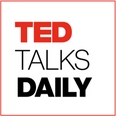
Advertising · Every weekday, TED Talks Daily brings you the latest talks in audio. Join host and journalist Elise Hu for thought-provoking ideas on every ...
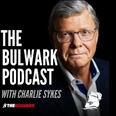
News · Charlie Sykes and guests discuss the latest news from inside Washington and around the world. No shouting, grandstanding, or sloganeering. C...
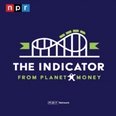
Business · A little show about big ideas. From the people who make Planet Money, The Indicator helps you make sense of what's happening today. It's a q...
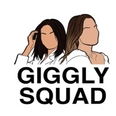
Entertainment · Welcome to Giggly Squad. Each week, Hannah Berner and Paige DeSorbo make fun of everything, but most importantly themselves. They discuss po...
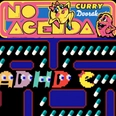
Entertainment · Deconstructing Media with No Agenda, by Adam Curry and John C. Dvorak...
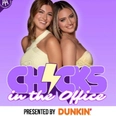
Advertising · On Chicks in the Office, Ria and Fran keep you in the know on all things pop culture. The Chicks are the go-to source for entertainment news...

Entertainment · Thirteen victims. An inconclusive investigation. Sixty years later, the story of the Boston Strangler still has a hold on the public imagina...
Display advertising, often referred to as banner advertising, involves visual ads placed on various websites, in contrast to text-based search ads that appear in search results on platforms like Google.
While search ads are focused on direct response, display ads aim at building brand awareness through engaging visual content like images or animations. Display advertising also enables retargeting, where ads are redirected to users who have previously visited your website, helping to keep the brand fresh in mind.
With opportunities to measure campaign performance and customize design and target audience, display advertising offers an attractive strategy for brands looking to enhance their online presence and effectively engage their target audiences.
The most effective formats and sizes for display ads vary depending on the platform and target audience, but here are some popular options:
Leaderboard (728x90 px): Positioned at the top of the page, this ad size captures visitors' attention right away.
Medium Rectangle (300x250 px): This size is flexible and can be placed in sidebars or embedded within content.
Large Rectangle (336x280 px): A larger variant of the Medium Rectangle that offers more visible space.
Wide Skyscraper (160x600 px): Often used in sidebars, offering a long, vertical ad space.
Mobile Leaderboard (320x50 px): Optimized for mobile devices and often placed at the top or bottom of the screen.
Consider adhering to industry standards and adapting ad format and size to the specific platform and your target audience. However, the emphasis should be on having well-thought-out content that engages and is relevant to your target audience with clear "Call to Actions" (CTA) to encourage clicks and conversions.
Measuring the effectiveness of your display advertising campaigns is crucial for evaluating the results of your campaign and for fine-tuning future marketing strategies. A first step could be to look over the Click-Through Rate (CTR), which represents the number of clicks your ad receives per view, providing an indication of the ad's engagement level. It is also important to track the conversion rate, which shows how many clicks are converted into desired actions such as sales or leads. Cost Per Conversion is another key indicator that helps you understand the cost-effectiveness of your campaign.
It may also be good to look at the impression rate, that is, how many times the ad has actually reached out and been displayed for brand-building purposes.
One of the major advantages of this type of advertising is its ability for audience targeting, where ads can be directed based on demographics, behavior, and retargeting, enabling a more personalized advertising experience. Moreover, with the use of various analytical tools, it becomes easy to track and measure the campaign's effectiveness by observing data on clicks, conversions, and views, which provides valuable insights.
However, display advertising also has its downsides. Ad blocking is one of the major challenges, where users can choose to block display ads, which in turn reduces the reach and effectiveness of your campaign. Ad fatigue is another downside, where ads that are shown too often can become irritating for the users, leading to decreased engagement and negative brand associations. Despite the ability for audience targeting, audience dilution can be a challenge if precise targeting is not used, which potentially leads to wasted marketing expenses. Additionally, the cost of display advertising can become significant, especially if the campaign is not well optimized to achieve desired results.
The cost of display advertising can vary based on several factors such as website, ad format, and target audience. Besides that, there are different pricing structures one can base on to adjust the cost according to the goal at hand. Below we list different pricing options for display advertising.
CPM (Cost Per Mille or Cost Per Thousand Impressions):
The price for 1000 views of your ad.
Often used for campaigns aimed at increasing brand awareness.
CPC (Cost Per Click):
The price you pay for each click your ad receives.
Used when the goal is to drive traffic to a website or increase interaction.
CPA (Cost Per Acquisition or Cost Per Action):
The price for each specific action or execution, such as a purchase or lead generation, that arises via your ad.
Used when the goal is conversions rather than just views or clicks.
CPL (Cost Per Lead):
The price for each lead generated through your ad.
Used in B2B marketing or for products/services with longer sales cycles.
CPV (Cost Per View):
The price for each viewing of a video ad.
Often used for video-based advertising campaigns.
Each pricing structure suits different goals and campaign types, and choosing the right pricing structure can help maximize the ROI for your display campaign.
Connect your company to the marketplace for free.
No commitments.